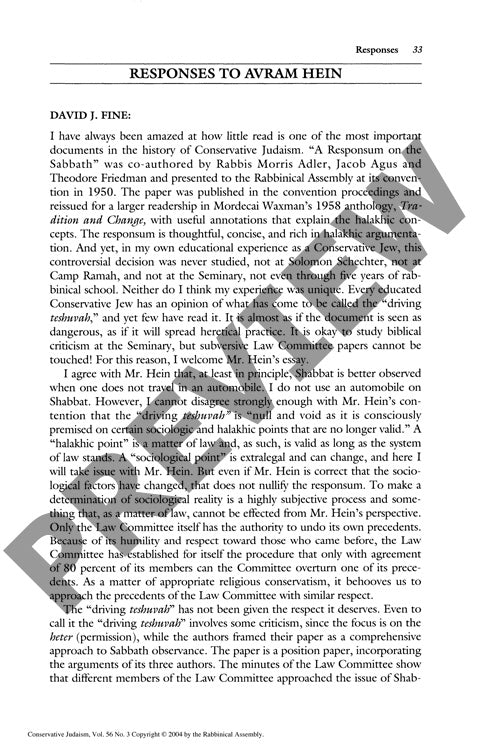Responses Ot Avram Hein
Couldn't load pickup availability
A landmark 1950 decision permitting Conservative Jews to drive to synagogue on the Sabbath continues to divide Jewish legal scholars and shape American Jewish religious life. Through analysis of halakhic argumentation, sociological data, and religious practice outcomes, this examination centers on rabbinic responses to Avram Hein's critique of the original "driving teshuvah" authored by Rabbis Adler, Agus, and Friedman. Critics maintain the decision violates biblical prohibitions and lacks proper legal foundation, while defenders point to its alignment with Conservative halakhic methodology and cite statistical evidence of sustained Sabbath observance. The debate reveals deep tensions between traditional Jewish law and modern suburban American realities, particularly regarding community formation and religious accessibility. Contemporary respondents diverge on whether changed sociological conditions since 1950 necessitate reconsidering the ruling - some advocate stricter interpretation while others suggest expanding permitted activities. The driving teshuvah remains a defining yet controversial element of Conservative Judaism, reflecting broader methodological differences in approaching halakhic change and the movement's ongoing challenge to balance traditional observance with contemporary American Jewish life. The discourse illuminates fundamental questions about religious authority, community structure, and the relationship between law and practice in modern Jewish movements.

More Information
-
Physical Description
-
Publication Information
Published 2004
ISBN
-
Publication Credits

